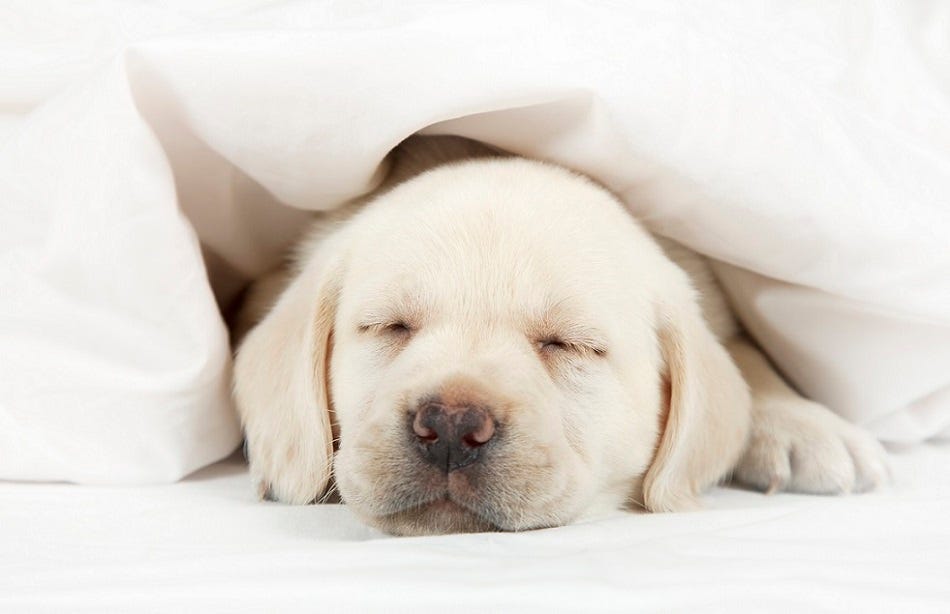Bringing home a furry addition to your family is an exciting experience. However, before you embark on your puppy parenthood journey, it’s important to make sure both you and your home are ready to welcome your newest family member.
Between stocking up on supplies and making sure you're training them right, bringing a new puppy home can be just as nerve-wracking as it is exciting - don't worry, we have you covered! Read below to find out our tips for bringing home a new puppy.
Puppy proofing your home
Puppies are known to be curious, sticking their noses into anything they can get their paws on. That’s why it’s important for your preparation to start before you bring home a new puppy. Creating a safe and secure environment in your home means they can explore their new space without fear of getting into something that could potentially harm them.
Try and restrict access to dangerous household items like:
- Electrical Cords
- Valuable ornaments or vases
- Poisonous plants
- Cleaning products
- Trash bins
- Food - both human and pet
- Forbidden items like shoes or kids toys
- Make sure all fences and gates are secure.
It might pay to create a puppy-safe area while your pup adjusts for the first few weeks. You might want to block off a certain area of the house with baby gates or by closing doors to try and keep them limited to an area you can supervise.
Puppy supplies you need
Before your furry friend arrives, you’ll need to gather essential items for them. If you’ve never owned a puppy before, the abundance of supplies can be overwhelming. Simplify things a little and drop into Best Friend Pets. We have everything you need to shop your new puppy checklist Australia wide.
Starting with essentials. You're going to need:
- Puppy food
- Food and water bowl
- Collar
- ID tag
- Lead
- Registration
- Plenty of delicious treats
- A range of toys from chew toys to soft toys
- Bedding
- A crate for sleeping and house training
- Kennel if your dog is going to be outside
- Car restraint
You should also think about your puppy’s health. Are their vaccinations up to date? Are they microchipped? When was their most recent health check? It's important to find a good vet who will help your puppy grow strong and healthy.
You should also consider investing in health and grooming supplies like:
- Flea treatment
- Worming treatment
- Brush and comb
- Shampoo and conditioner
- Nail clippers
Letting them explore their new home
Make sure you give your pup the time to explore their space - there's lots of new smells for them to investigate! Different dogs will respond in different ways - some might follow you everywhere, others might prefer to sit back and observe. It's important to remain patient and let them go at their own pace, allowing them the time they need to explore their new home.
How to settle a new puppy
The first 48 hours with a new puppy can be a real challenge. As you let them explore and begin to scope out every nook and corner, you might find they whine or cry at nighttime. To help them settle in, it's a great idea to provide them with a den.
To create their perfect den, you'll want a small, comfortable and secure area that they can feel safe in - think soft blankets or pillows that they can snuggle into. Make sure the den is ready for them so that when you get home, you can pop them straight in there to calm down.
If they're outside, make sure their bedding is nice and warm (or breathable in summer). Try and put their kennel in a sheltered spot that isn't too far from the back door so that they can still observe and feel involved.
Does my puppy need training straight away?
Pups learn a lot within their first year of life. What they experience in their young years can shape their behaviour all the way through to adulthood. Training them early on is one way to ensure your pup learns behaviours that you want to enforce over the years to come.
Puppy School is a great way to introduce your paw pal to the basics of being the best boy or girl. Your pup will learn all the basics like sit and stay, learn valuable skills like socialisation, all while making a bunch of new friends.
Getting a new puppy doesn’t need to be a challenging time for the family. Instead, you should take your time and enjoy watching your pup insert themselves as the freshest family member!
Frequently Asked Questions:
How long does it take for a puppy to settle in a new home?
There isn’t one answer to how long it takes for a pup to settle. Like humans, some may feel at home within a couple of days; others may take several weeks. The adjustment time can depend on a few factors, including how you and your family introduce them to the home.
How to get your new puppy to stop crying?
Despite how sad they sound, a new puppy crying is a normal part of the adjustment period. It should ease as they begin to feel more settled in their new home.
How should I introduce my new puppy to another dog?
Bringing a new puppy home to another dog can be one of the most stressful parts of a new furry family member. While you might just want to let your dog and newbie pup meet at home, it's best to let them meet for the first time in a neutral environment - like the park. That avoids the dog who is already quite at home becoming territorial.
- Let the dogs greet each other with a slack leash so they don't feel like they're being held back.
- Keep the initial interaction brief - like any other dog they come across. If that goes well, try going on a short walk together.
- If the walk goes well, they might be ready to meet on home turf.
For a more comprehensive guide, check out our tips for socialising your dogs.




